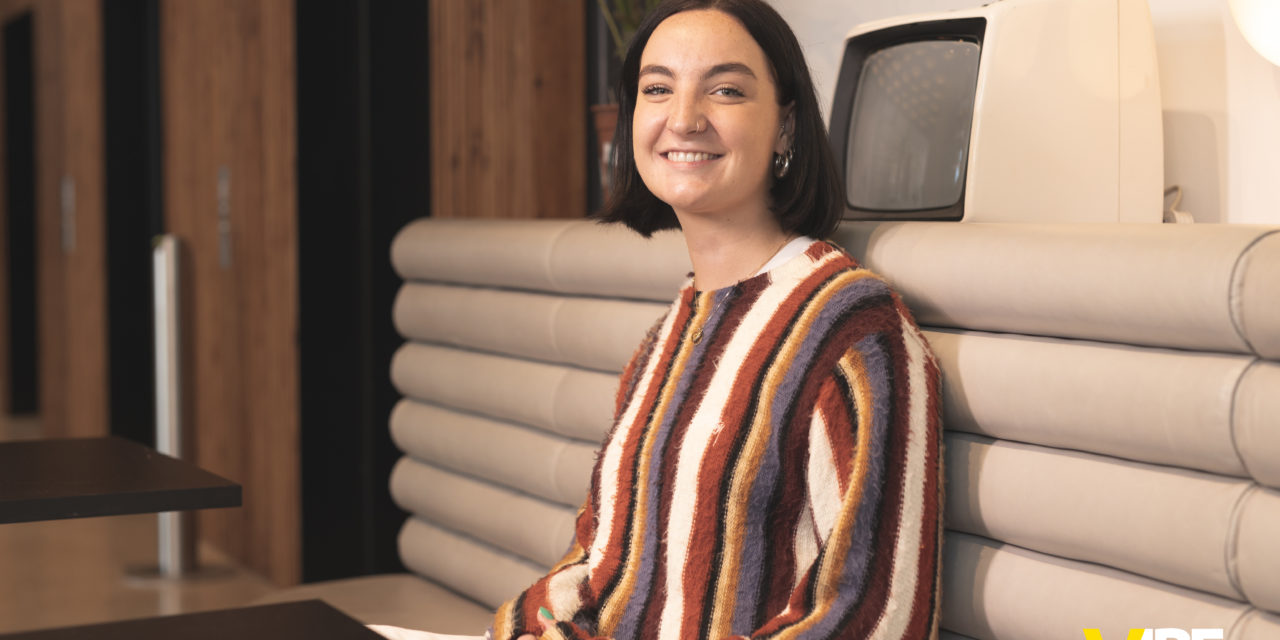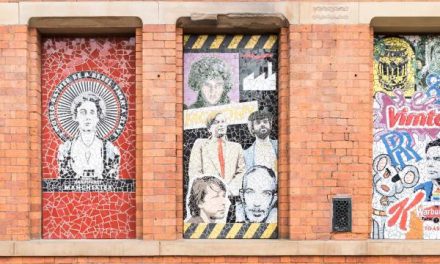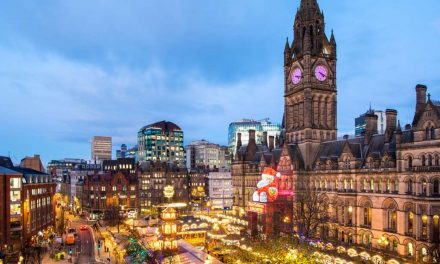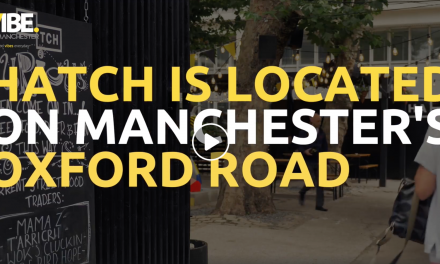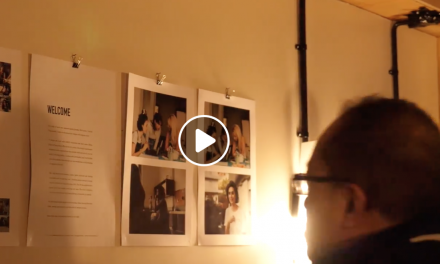Name: Maddie Dutton
Age: 22
From: Essex
Lives: Ancoats Manchester
Contact: [email protected], https://www.instagram.com/daddie.mutton/, https://www.instagram.com/afosmcr/
How would you describe yourself?
That’s quite hard, So I guess, I’d say I’m definitely outgoing. I’m usually the loudest person in the room! I take after my dad! I can talk for England Scotland and Wales!
And as an artist? How would you describe your artistic style?
So I mainly worked with photography, I did photography at A-level and it was always something that interested me. I mainly specialised and was interested in film photography, particularly portraiture and studio work. My very first exhibition, I put some of my old photography in.
But in terms of what I’m mainly interested in to do with art, it’s much more based around art history. I did art history at university. And what I’m doing now is essentially events, organisation and curating so it’s the organised aspects, the organising part of art basically.
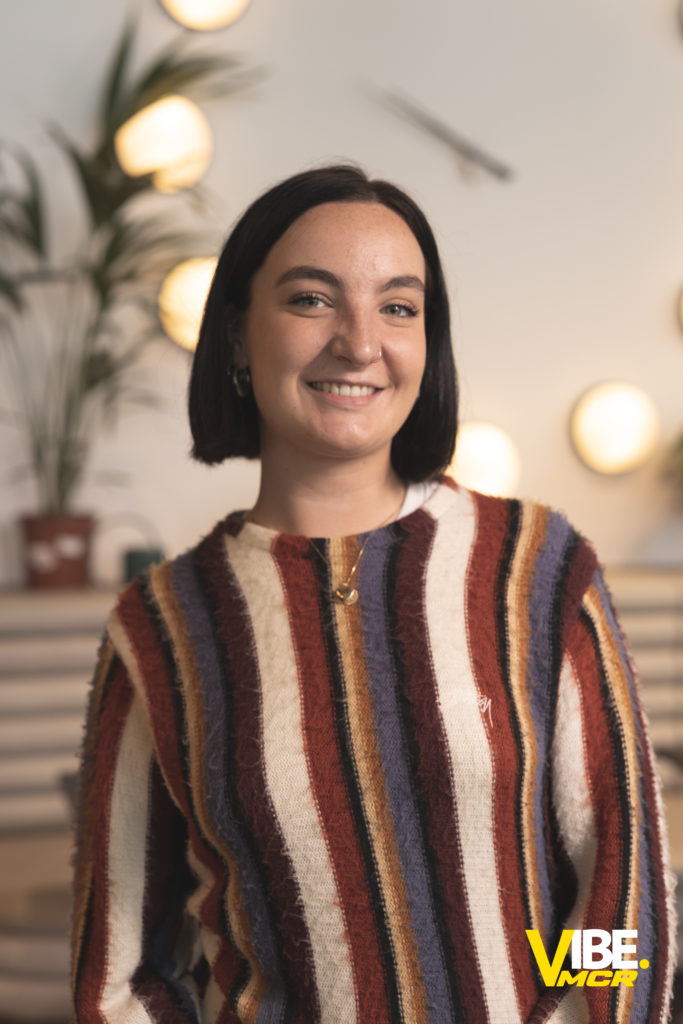
Who would you say is your favourite artist and what’s your favourite genre? What have your inspirations been?
As an art historian, it’s quite hard to like separate art from artists. I always say that many artists are assholes. So, like, Paul Gauguin, for example, is one of my favourite artists just to look at his work, but he was a horrible man. So it’s really difficult, but a lot of like, my interests lie in sort of abstract expressionism, Impressionism, those sort of that sort of area.
One of my favourite errors or movements is really small. I think it lasted, six years max, because it was within Impressionism. So a group of artists called the Fauxvists, or the Fauxs. And it translates from French for wild beasts, I think. So it’s artists like Matisse, those sorts of people, and it’s a lot of it is just really bright, amazing colours and it wasn’t hugely, like, theoretical or anything like that but in terms of like, the aesthetics of the work, its my absolute favourite thing, its gorgeous.
How did you first get into art? How long have you been doing it?
I always say that, you know how when you’re little, your parents take you to theme parks and that kind of thing. My parents didn’t do that. My mum took me to galleries and museums and the ballet, and that sort of things been ingrained into me for a long time, it’s definitely just something I’ve always been interested it. I didn’t necessarily think I’d go down the art route myself, then when it came to A-levels, I did do art history and photography. I had this amazing teacher called Andy for both, and he just sort of inspired me to do it. It was quite funny, I wasn’t the best student in college and when I went into the upper sixth, I didn’t have Andy anymore. I had David- he was lovely, but I just decided to not go to his lessons and just do the work in my own time. So I remember he came and sat me down one day, and said, What are you planning on doing University? And I said, Art history, and he was like, really?
When I was applying to unis, MMU was my insurance, I had my heart set on leads and I was so adamant I was gonna get in, even though I did no work and no revision! Obviously, I didn’t get into Leeds, and I’d put Manchester down, but I’d never been here before. I hadn’t looked around, I didn’t know what the university was like, so it was a bit of a risk! The first time I came here was literally when I was moving into halls, but I immediately fell in love with it and I genuinely can’t see myself going anywhere. Everything happens for a reason, I’m a firm believer in that.
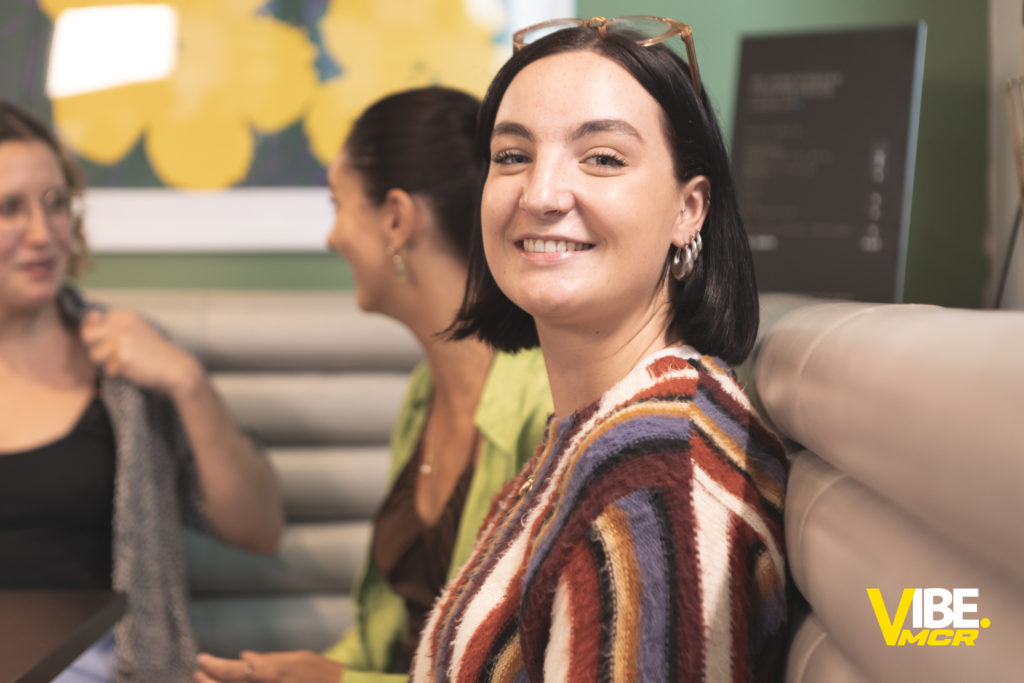
What are your thoughts on the art scene in Manchester? Do you feel that it’s helped you in what you want to do?
In first year of university, I did a lot of figuring out what kind of stuff I was interested in, Manchester definitely helped me in that sense. We had this project where we had to use the archives at MMU. My group got the slide library in, which is all the old film photography slides. There’s 1000s of them, just drawers and drawers and drawers of them. And I found a bunch of older Martin Parr slides, he’a really well-known photographer, who went to MMU. So it was really amazing to have access to those and we blew them up big and made an exhibition around these photographs and that’s sort of when I realized that was what I enjoyed doing. Then once I got to third year, I became a complete nerd because it was lock down and I just completely submerged myself in everything, so it’s kind of grown from there.
I knew I wanted to do something to do with Art obviously, but I had no idea how to do it. I just assumed I would apply for a job and maybe get it. Collectives and the community style side of the art world at the moment is really helping artists get out there. But I didn’t really know what was going on in terms of all that kind of thing, I wasn’t really involved before I came to Manchester.
What has being involved in Art for our sakes meant to you?
So me and Tasha, we say we work so well together because she’s amazingly creative, and really practically talented and I’m the one that likes sending emails and getting things done! We’re friends way before anything else. And it just so happens that we do this thing together. So it’s really great.
I think before meeting Tasha, before, starting art, for our sakes, I didn’t really think that much about breaking into the art world. So it was nice, because we’ve sort of created our own art world, rather than trying to join the big one, created this own sort of bubble for ourselves. Which I think has been really beneficial not only for us, but for the artists as well. So Tasha always had like little things going on here and there, but I was completely out of the loop and then when I started Art For Our Sakes, it’s like, oh, you meet someone who’s also got a collective or you meet someone that’s doing something else and they want you to get involved. We’ve ended up collaborating with another collective of Natasha’s friend and we’ve worked on exhibitions with them, we’re working towards a new one in October. So I think it’s just allowed us to make it ourselves rather than just trying to join up to these big powerhouses like Manchester art gallery. And it’s also meant that we can just pave our own road, do it exactly how we want to do it.
We’ve made up our own ethos, a manifesto, essentially of how we want to run Art For Our Sakes and how we want people to receive it as well. So it’s been really beneficial for that I think, more than anything, like the artists are always so appreciative. And everyone that comes to the events is always saying, I would never normally come to an art exhibition because you just think of it as like, really stuffy, really quiet and you’re scared to speak loud. And that’s not what it should be like, that’s one thing that always really annoyed me when I went to galleries and art exhibitions when I was younger, you want to be able to talk about it and you don’t want to feel like you have to be really quiet and respectful. So our whole thing is very open and it’s how you want to take it. The artists are there, if you want to have discussions with the artists you can, they’re just normal people.
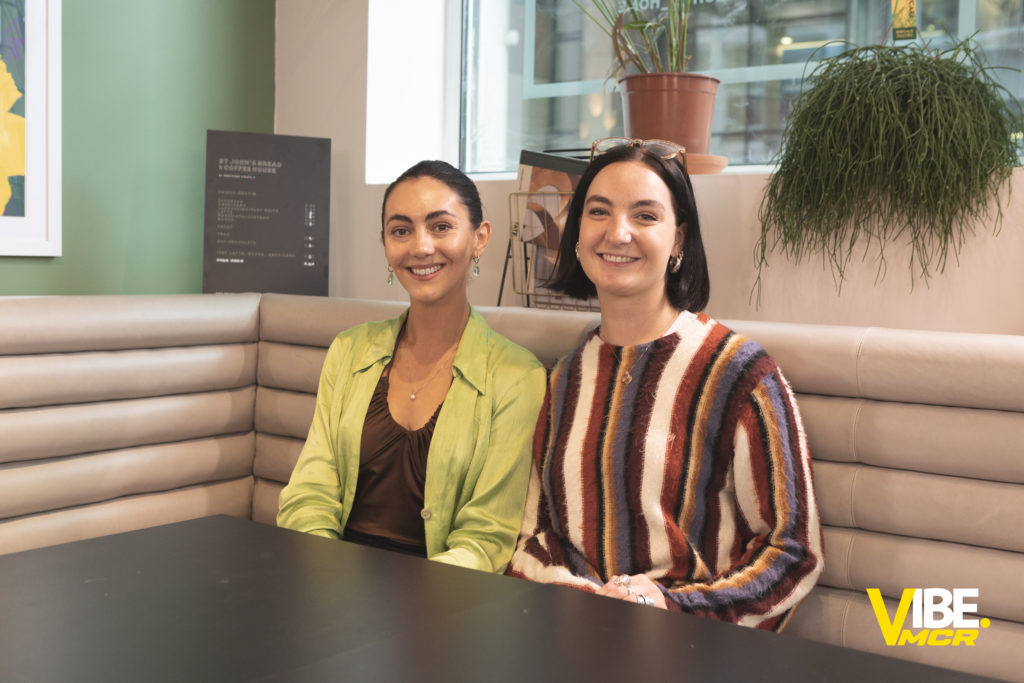
What are your thoughts on where the art world is going? The changes- what kind of challenges are there? What are the positives, the negatives?
What we’re doing now is on a very small scale, so it’s probably a bit presumptuous, maybe optimistic to say that this is the future of the art world. It would be nice if it was! It would be nice to get about a bit, theoretically, I do think that AFOS has potential to go on a bigger scale but keep sort of in this more community style of working and exhibiting your work. The powerhouses like the Tate and Alan Guggenheim and MoMA, they’re always going to be there and they’re always going to be the big ones. But I think these kinds of collectives, for example, could be a nice way to bring Art back to how it used to be before.
My problem with contemporary art is a lot of more established artists sell their work for hundreds of millions of pounds or whatever. I don’t think it’s the same for most emerging artists, or young people, they don’t like the commercial aspects of the scene. It used to be getting your work out there, getting your work sold was always the main thing as well as being recognized as good artists, because they were doing it to make money, whereas it’s obviously a bit different now. Time was you had to get your work in big exhibitions, where lots of buyers come along, and it’s just so different now. Now people just come in to meet, like our it’s like, a little less glamorous, you just sort of go in you meet other artists, you bring up new ideas, you get to know more people, maybe sell some prints, it’s not as much of a big deal so it’s nice.
And that’s what the community spirit really used to be in like the old collectives, when all the artists live together in Paris, maybe I’m romanticizing it slightly, but I think it would be nice to bring art back down to the basics and where everything started, I think it would be that would be the best way that it could possibly go in my eyes, it doesn’t have to be all about money and about all artists being famous. That reminds me, actually, I recommend a film called Midnight in Paris. It’s one of my favourite films ever and it goes back to these little points in time with the artists, and the social life that they are all living in and stuff. It’s very escapist.
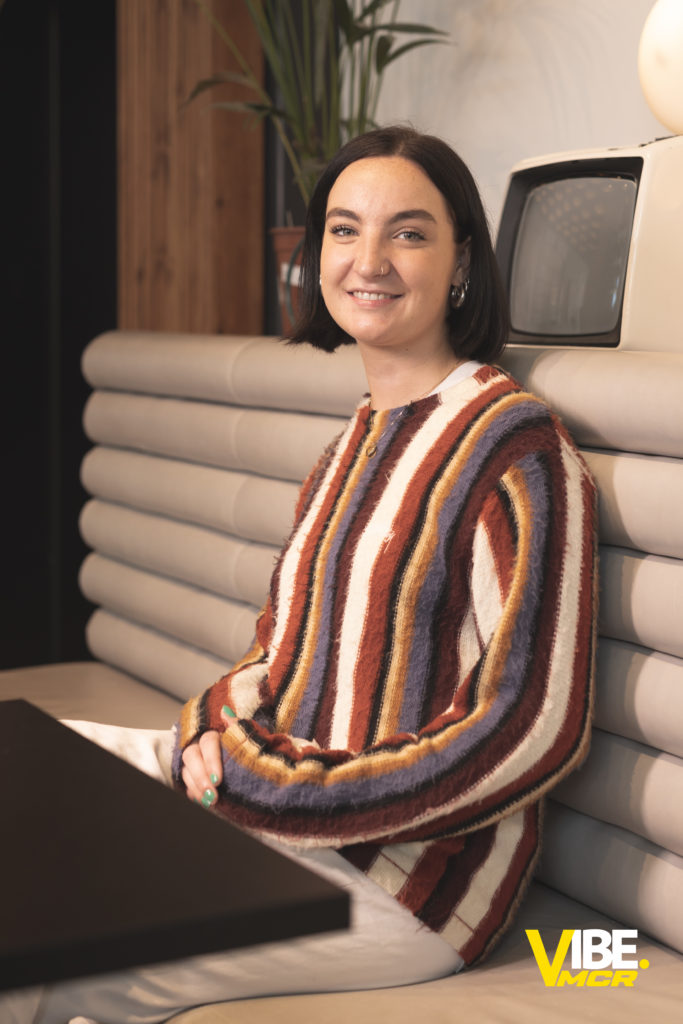
What would you say is the best thing about being an artist or being involved in in the art world?
I think, from my position, it’s just seeing how much it means to all the artists, what we’re doing I kind of almost feel like a mother hen with all of these little artists under my wing and they’re all such amazing, lovely people and they’re always so appreciative of we’re doing, getting their work out there. So that’s probably one of my favourite parts and of course, when you’re spending a month or whatever organizing event in an event, seeing it all come into fruition, and it all going smoothly, that’s always quite satisfying as well. But definitely the gratitude and the appreciation from the artists is a big thing for me.
I always see it with any artists I work with, everything is to do with their experience, it all comes from within, nothing’s done randomly, everything’s sort of got a reasoning behind it. I think since learning about more hours and like the meanings behind it, and the symbolism in art it just shows how sort of cathartic it can be for a person, how much emotion and how much of yourself goes into your work. When I was back doing photography, it’s difficult when you’re doing it for a project or whatever, because you’re trying to stick to a brief So there’s only so far you can go with the emotional side of things. But I think definitely with every single artist, there’s always a lot of close connection with the piece that you’ve created, for example, in how they price their work, there is a factor in that of how much emotion and energy have gone into that piece as well as how much of their time, and the materials. artists don’t always just like come up with a number off the top of their head and I think if you put so much emotion into it, it’s probably priceless to them.
What would your advice be for aspiring artists and people who are looking to get involved and become part of the art scene?
If you don’t ask you don’t get. I think very early on, what we were doing was essentially based off doing favours for people and getting favours from friends and stuff like that like we’d always get venues for free and we had people helping out whether it be the DJs or the musicians or someone on the door that kind of thing like it’s just putting yourself out that be confident, be nice to people and people will be nice back and do what they can or you. So much of what we did at the start was as I said, was just favours from friends and then networking at the event, So if you come across as approachable, just have time for everyone, you never know who it might be that you’re talking to, it could be a really amazing artist or they could really help you out in some other way, just be nice to people and ask.
We get all sorts of requests I mean we’re currently taking submissions for this exhibition in October, but it can literally be sure about anything. I had an artist who exhibited at our Northern Lights show asking me advice on how to get their work out there, that kind of thing.

